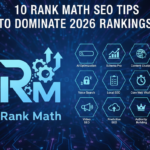For years, we’ve been told that data is the new oil—a resource to be collected, refined, and monetized for immense profit. But in 2025, a new and uncomfortable question is emerging in boardrooms everywhere: What if your data is actually a liability?
In the rush to embrace AI, many businesses have amassed vast oceans of customer data without a clear, responsible framework for its use. This “collect first, ask questions later” approach is no longer just risky; it’s a ticking time bomb. The solution lies in a paradigm shift towards ethical AI for business, an approach that treats customer data not as a commodity, but as a loan built on trust.
This isn’t about hindering innovation. It’s about building a more sustainable, resilient, and trusted business for the future.
From Data Hoarding to Data Responsibility
The digital landscape is littered with stories of data breaches, biased algorithms, and privacy scandals. The consequences are severe: multi-million dollar fines, catastrophic reputational damage, and a permanent erosion of customer loyalty.
The conversation has fundamentally changed. The measure of a smart business is no longer how much data it has, but how responsibly it manages it. This is the core of responsible AI—an understanding that the “how” is more important than the “how much.”
What is Ethical AI? A Simple Breakdown
Ethical AI isn’t some complex, abstract philosophy. It’s a practical framework built on three key principles:
-
Transparency: Are you open and honest with your customers about what data you are collecting and how you are using it? Can you explain, in simple terms, how your AI models make decisions?
-
Fairness: Have you audited your algorithms for hidden biases? An AI model trained on flawed data can perpetuate and even amplify societal inequalities in areas like hiring, lending, and marketing. AI ethics demands a commitment to fairness.
-
Accountability: When something goes wrong, who is responsible? A core tenet of ethical AI is establishing clear lines of human oversight and accountability. The AI is a tool; the business remains responsible for its impact.
Why Ethical AI is Your Greatest Competitive Advantage
Adopting an ethical framework isn’t a cost center; it’s one of the most significant competitive advantages a modern business can have.
-
Trust is the New Currency: In an era of deepfakes and data leaks, customer trust is more valuable than ever. Customers are actively choosing to do business with brands they believe are responsible stewards of their data. Demonstrating a commitment to data privacy is a powerful market differentiator.
-
It Mitigates Massive Risk: Regulations like GDPR have shown that governments will not hesitate to impose crippling fines for data misuse. An ethical framework is your best defense against legal and financial jeopardy.
-
It Attracts and Retains Top Talent: The best and brightest minds in tech want to work on projects that have a positive impact. A strong ethical stance makes your company a more attractive place to work.
-
It Future-Proofs Your Business: The trend is clear: data privacy regulations are only going to become more stringent. Businesses that build an ethical foundation now will be years ahead of their competitors who are forced to scramble and react later.
Conclusion: Choose to Build a Business of Trust
The way your business handles data and AI will define its legacy. Will you be known as a company that exploited user data for short-term gain, or as one that built a lasting relationship with its customers based on respect and trust?
Implementing ethical AI for business is no longer a choice. It is a fundamental responsibility and a strategic imperative. Start today. Build a business that is not only intelligent but also wise, responsible, and worthy of your customers’ trust.















